
The Azerbaijan Democratic Republic, also known as the Azerbaijan People's Republic, was the first secular democratic republic in the Turkic and Muslim worlds. The ADR was founded by the Azerbaijani National Council in Tiflis on 28 May 1918 after the collapse of the Transcaucasian Democratic Federative Republic, and ceased to exist on April 28, 1920. Its established borders were with Russia to the north, the Democratic Republic of Georgia to the north-west, the Republic of Armenia to the west, and Iran to the south. It had a population of around 3 million. Ganja was the temporary capital of the Republic as Baku was under Bolshevik control. The name of "Azerbaijan" which the leading Musavat party adopted, for political reasons, was, prior to the establishment of the Azerbaijan Democratic Republic in 1918, exclusively used to identify the adjacent region of contemporary northwestern Iran.

Abdulhamid Bey Sharif Bey oglu Gaytabashi was the last Chief of General Staff of Azerbaijani Armed Forces of Azerbaijan Democratic Republic before its occupation by the Red Army in April 1920.
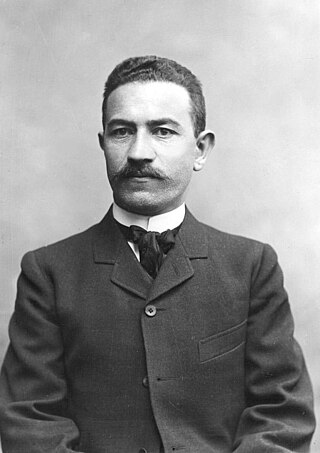
Mustafa Mahmudov was an Azerbaijani political leader who was instrumental in the nation's independence movement in the early 1900s. He served as a member of parliament for the second Russian State Duma in 1907 and was Deputy Secretary of the Azerbaijani National Council at its initiation in 1918. Mahmudov also was a member of Azerbaijan's Commission on Agriculture. He represented the Musavat political party.
Musa bey Rafiyev Haji Mammadhuseyn oglu, also known as Musa bey Rafibeyli, was an Azerbaijani public, political, and state figure. He was a member of the Muslim faction of the Transcaucasian Sejm and the Azerbaijani National Council. He held ministerial positions in the second and fifth governments of the Azerbaijan Republic. Elected to the Azerbaijan Republic Parliament from the Musavat party, he served on the Finance and Budget Commission.
The Muslim Socialist Bloc was a political party in Transcaucasus/Azerbaijan. The party was formed in the fall of 1917, as an Azeribaijani offshoot of the Socialist-Revolutionary Party. The main leaders of the party were Aslan bey Safikurdski and Ibrahim Haidarov. The Muslim Socialist Bloc had a predominantly agrarian party, with a loose organizational structure.

Quba Uprising— the uprising by Azerbaijanis against the Soviet occupation in 1920. Hamdulla Afandi Afandizadeh, Kachak Mail, and ADR army officer Afandiyev were leaders of the uprising which lasted about three weeks. Aliheydar Garayev and Levan Gogoberidze were delegated to the region to suppress the uprising. After weeks of unequal clashes, the rebels were defeated. During the uprising, many villages were burned and 400-500 peasants killed.
Tartar Uprising – the first uprising against the Soviet occupation in 1920. Rashid agha Javanshir was one of the leaders of the uprising. Rashid agha was the descendant of the Panah Ali Khan who was the founder of Karabagh Khanate.

Müsüslü Military Unit the national military unit and subdivisions that took up positions in June 1918 near the Müsüslü station against the forces of the I Caucasian Red Corps, which consisted of the Dashnak-Bolshevik groups of the Baksovnarkom, which were moving towards Ganja to liquidate the Azerbaijan Democratic Republic.
The Jewish National Council was an organization formed by Jews living in the country during the Azerbaijan Democratic Republic (1918–1920).
Asad bey Amirov was a Member of the Parliament of the Azerbaijan Democratic Republic and the Ittihad Faction.

Baba Behbud or Baba bey Behbud Saricali Javanshir was an officer in the National Army of Azerbaijan People's Republic. He also served as an immigrant colonel of Turkish Armed Forces in the Turkish Independence War. He was awarded the Medal of Independence. He participated in the Battle of Askeran and the Karabakh uprising against the occupation after the April invasion.

Javad bey Mammad agha oghlu Shikhlinski was an officer of the Tsarist army, a major general of the Azerbaijan Republic Army, and the commander of the Ardabil garrison in the Qajar army.
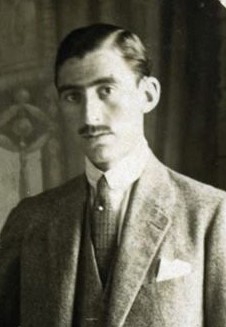
Mahammad Haji Bayram oglu Maharramov was a member of the Parliament of the Azerbaijan Democratic Republic, elected representative from Erivan Governorate to the Constituent Assembly of Russia. He was the advisor of the delegation to Paris and a member and secretary of the Socialist faction.
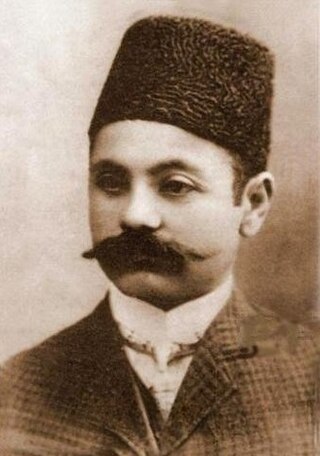
Orujov Oruj Ali oglu was a press official, publisher, and publicist.

Osman Agha Gulmammad Agha oghlu Gulmammadov - was an officer of the Russian Empire and the Azerbaijan Republic, as well as a colonel in the Turkish Armed Forces.
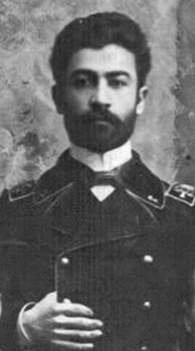
{{Infobox officeholder | office = [[Head of Javad uezd|Javad uezd]] | birth_date = 1879 | birth_place = Salyan, Javad uezd, Baku Governorate, Russian Empire | death_date = 1942 | death_place = Baku, Azerbaijan SSR, USSR | termstart = 1918 | termend = 1919 | predecessor = | successor = | image = Bakhis bey Rustambeyov (1904).jpg | appointer = Azerbaijan Democratic Republic | education = Saint Petersburg State Institute of Technology | parents = Asad bey Rustambeyov }} Bakhish bey Asad bey oglu Rustambeyov - Azerbaijani statesman, head of the Javad uezd and member of the Parliament of the Azerbaijan Democratic Republic.
Garib Mahammadkarim oğlu Karimoğlu or Garib Yüzbashi — member of the Parliament of the Azerbaijan Democratic Republic, chairman of the executive committee of Vartashen district, member of the Ahrar Party.

Ismail Khan Ziyadkhanov or Ismail Khan Ziyadkhanly was a member of the government of the Azerbaijan Democratic Republic, a diplomat, and a lieutenant colonel in the army of the Azerbaijan Democratic Republic. He was one of the five Azerbaijanis elected to the First State Duma of the Russian Empire.
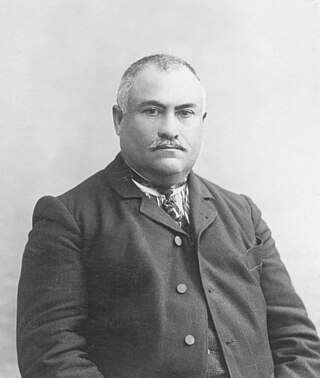
Mahammadtaghi Aliyev, also known as Mahammadtaghi Alizadeh, was a public and political figure, economist, and publicist. He was one of the five Azerbaijanis elected to the First State Duma of the Russian Empire.

The Hajibeyli Brothers' Opera-Operetta Artists' Troupe— an independent troupe of artists that operated in Azerbaijan. The troupe was led by Uzeyir Hajibeyli and Zulfuqar Hajibeyli.














